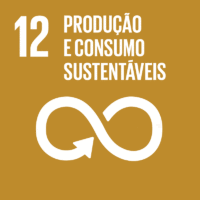Ciência_Iscte
Publicações
Descrição Detalhada da Publicação
Título Revista
Museum International
Ano (publicação definitiva)
2019
Língua
Inglês
País
Reino Unido
Mais Informação
Web of Science®
Scopus
Google Scholar
Esta publicação não está indexada no Overton
Abstract/Resumo
How can museums contribute to the development of commons-based livelihoods? This article explores this question by expanding the concept of museum beyond its classical roles of conservation and exhibition of significant artefacts for cultural and educational purposes, entering functions and fields of activity normally identified with those of marketspaces.
This conceptual exploration includes spaces which self-identify as museums but were created to support specific areas of economic activity, as spaces of performance and promotion of identities and practices, as well as commercialization. It also includes public spaces which blur the boundary between museum and marketspace, by combining the functions of conserving and displaying material and immaterial cultural heritage with that of being spaces of production and transaction of goods and services which represent such heritage.
Based on a literature review, illustrated by two case studies in Portugal, Ecomuseu de Barroso and Cooperativa Terra Chã, this article explores how hybrid public spaces which fulfil the functions of museum and marketspace politically legitimize and promote the economic sustainability of commons-based practices of production, build synergies and economies of scale between such practices, and connect their promoters with the wider public.
By promoting commons-based practices of production which were marginalized by the logic of capitalism and bureaucratic governance, they become social spaces where participating producers and consumers formally and informally build trust with cooperative practices of production, distribution and commercialization. They are also spaces of mobilization of symbols and practices of belonging, as well as promotion of grassroots leadership.
Agradecimentos/Acknowledgements
--
Palavras-chave
Solidarity economy,Commons-based livelihoods,Mobilizational citizenship,Alternative marketspaces,Public space
Classificação Fields of Science and Technology
- Outras Ciências Sociais - Ciências Sociais
Registos de financiamentos
| Referência de financiamento | Entidade Financiadora |
|---|---|
| SFRH/BPD/94495/2013 | Fundação para a Ciência e a Tecnologia |
| UID/CPO/03122/2013 | Fundação para a Ciência e a Tecnologia |
Contribuições para os Objetivos do Desenvolvimento Sustentável das Nações Unidas
Com o objetivo de aumentar a investigação direcionada para o cumprimento dos Objetivos do Desenvolvimento Sustentável para 2030 das Nações Unidas, é disponibilizada no Ciência_Iscte a possibilidade de associação, quando aplicável, dos artigos científicos aos Objetivos do Desenvolvimento Sustentável. Estes são os Objetivos do Desenvolvimento Sustentável identificados pelo(s) autor(es) para esta publicação. Para uma informação detalhada dos Objetivos do Desenvolvimento Sustentável, clique aqui.

 English
English




